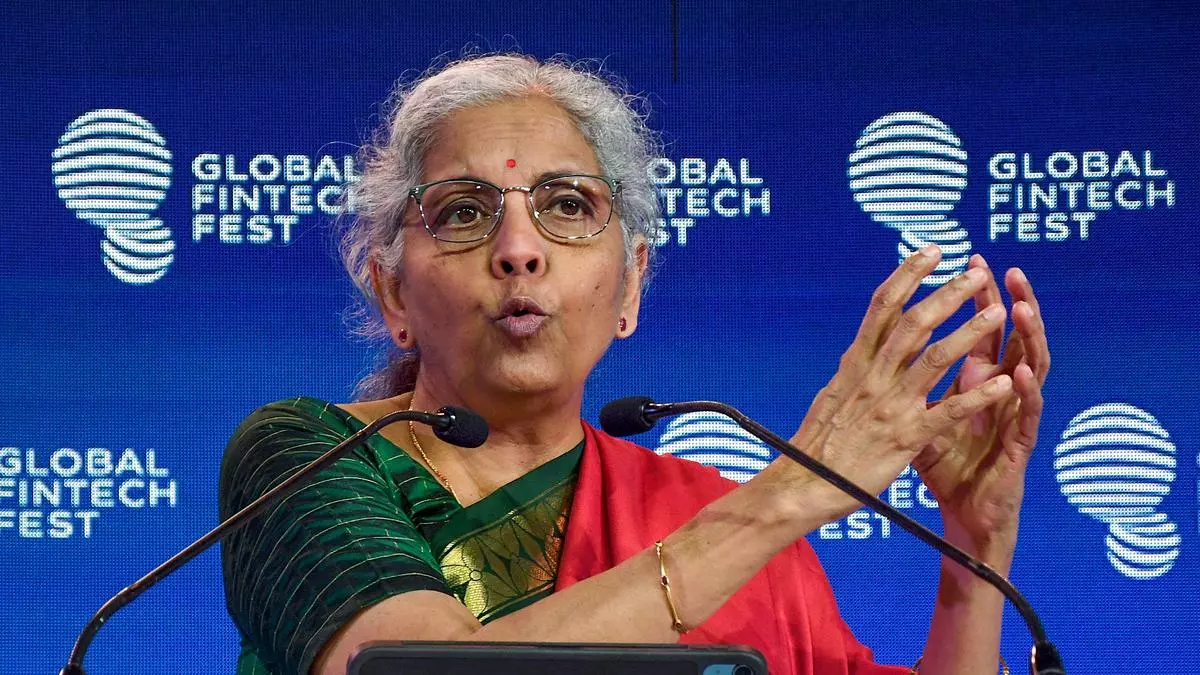Working on global framework to manage crypto-related issues: FM
India, under its G20 Presidency, is working on a global framework to manage global issues pertaining to crypto and related assets, said Finance Minister Nirmala Sitharaman on Tuesday.
“India’s [G20] presidency has put on the table key issues related to regulating or understanding that there should be a framework for handling issues related to crypto assets,” said Sitharaman, adding that cryptocurrencies cannot be regulated efficiently without global co-operation to evaluate the risks and benefits.
“Active discussions are happening. Content-rich papers from institutions International Monetary Fund (IMF), Financial Stability Board (FSB) and Organisation for Economic Co-operation and Development (OECD) are being discussed on various issues,” she said.
- Also Read: Enhance rural branch network in MSME-identified cluster areas, advises FM Sitharaman to banks
Sitharaman was speaking at the launch of the Global Fintech Fest 2023, themed ‘Global Collaboration for a Responsible Financial Ecosystem: Inclusive, Resilient, and Sustainable’.
“As much as you build firewalls, there are more and more newer ways in which attacks are being made. Crypto [is a] threat as well as an opportunity,” she said, adding that fintechs should invest heavily in robust security with advanced encryption and other measures to protect financial transactions and user data.
The RBI has, on several occasions, voiced its concerns about crypto assets, with Governor Shaktikanta Das saying that these assets threaten financial stability. At present, the exchange, transfer, safekeeping or administration of cryptocurrencies would be under the ambit of the Prevention of Money Laundering Act (PMLA).
She also called for international collaboration across areas such as tackling tax evasion, easing the global debt stress, building multilateral development banks and their reforms, and forming cross-border partnerships, given that technology “transcends borders in an interconnected world”.
Financial inclusion
India’s taxable workforce is expected to rise to 85.3 per cent by 2047 from the current level of 22.5 per cent. Further, the share of the workforce in total population is expected to rise to 45 per cent by 2047, said Sitharaman, acknowledging financial inclusion in the country.
“There will be 48.2 crore income tax filers in 2047, as opposed to seven crore in FY23,” she said, adding that the latest Income Tax data for August is the biggest indicator of the wide-scale formalisation of the Indian economy.
“Each tax slab has seen a minimum of three-fold surge in tax filings. Maharashtra continues to be the leader in ITR (income tax return) filings.”
- Also Read: Taming Inflation a priority. FM Sitharaman advise to Central Banks: Keep growth priority in mind
Speaking on democratisation of financial savings, Sitharaman said the “financial revolution has even reached India’s backwater towns”, reflected in the fact that demat accounts have increased to 10 crore in FY23 from 4.1 crore in FY20.
Moreover, the share of beyond the top 30 cities in mutual fund assets has increased to 26 per cent from 15 per cent in the last four years.
“There was a time when conventional financial activities were the backbone of the financial ecosystem but today fintech has become a more robust and dynamic financial inclusion tool,” she said.
She also touched upon another G20 priority–cross border transactions, where she said active discussions have happened for international initiatives on interoperability of national fast payment systems for seamless flow of funds.
Global cross border payments are estimated at $20 trillion, incurring a transaction cost of $120 billion. India is the largest remittance receiver, seeing $100 billion remittance in FY22, said Sitharaman, asking the fintech industry to take the lead in cross-border payment systems given the success seen in digital payments.
